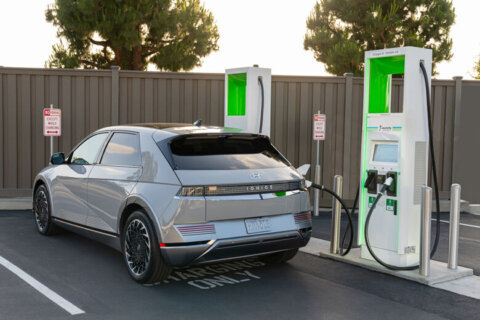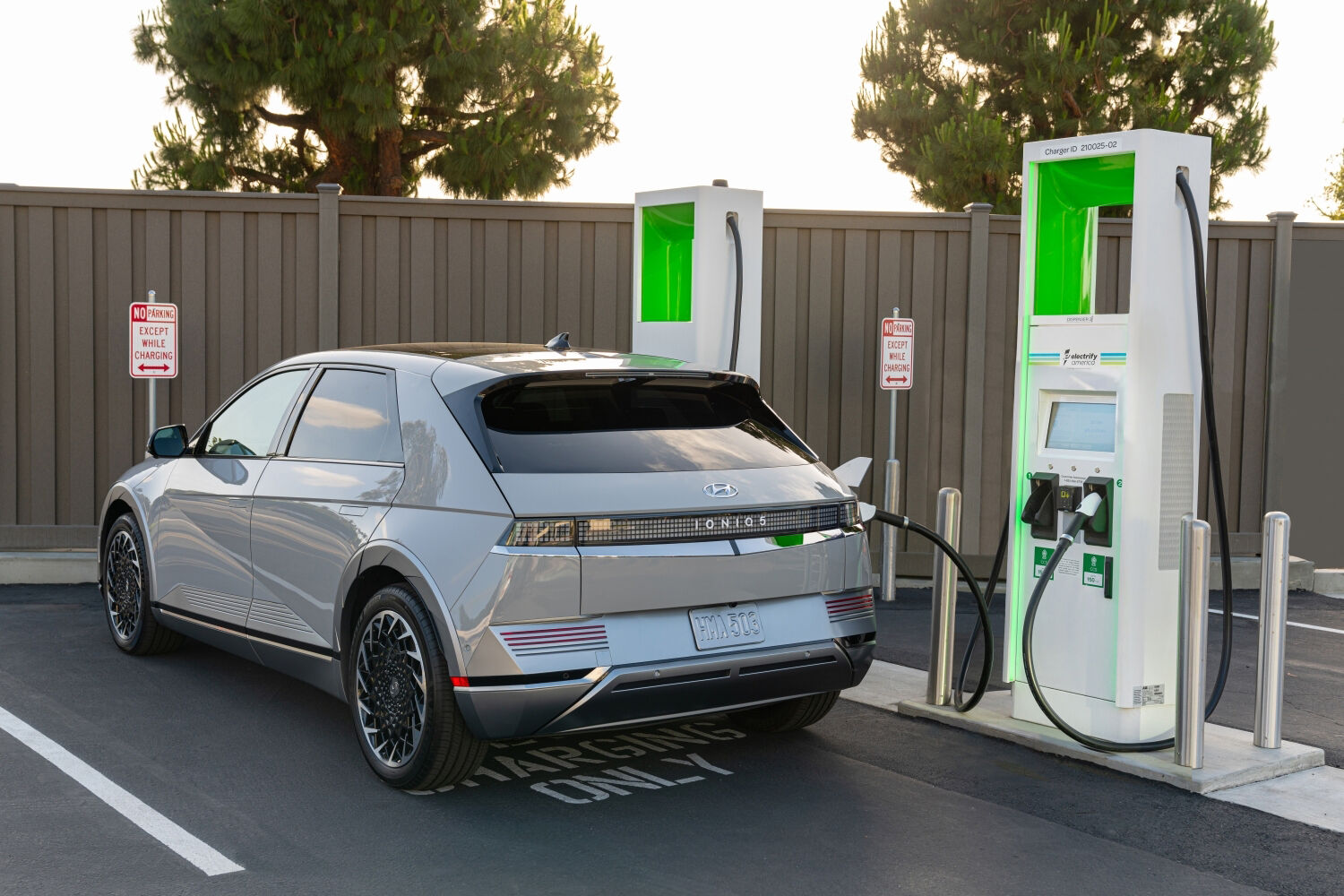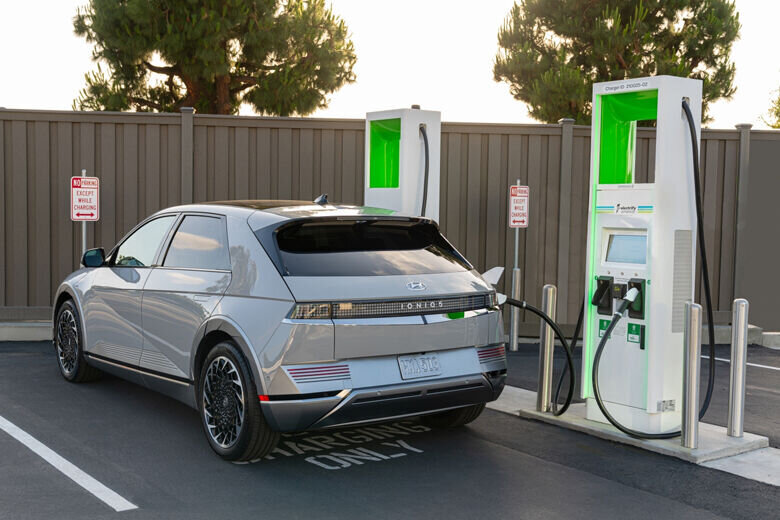

Public charging stations are convenient and fast for electric vehicle owners, but there are usually a limited number of individual chargers. EV drivers need to think of other EV drivers, too. At the top of the list of public EV-charging station etiquette: don’t plug it and forget it. That is called being an EV-charger hog.
The rule of the road is charge it, and move it. No need to charge all the way.
“Many new EV drivers don’t realize that they actually don’t need to charge to 100% state of charge. After they receive 80% of a charge, the charging automatically slows down,” said Misti Murphey, director or marketing at Herndon, Virginia-based Electrify America, which is building out the largest open network of fast charging stations in the U.S.
A lot of public charging stations can be found in big box retailer parking lots and shopping plazas as part of a conscious decision to provide drivers something to do while their vehicle is charging. Electrify America can make sure drivers don’t kill too much time.
“One of the great things about the Electrify America mobile app is that it allows you to track your charge in progress. Or, if you set up your settings, we’ll even send you a text message saying, ‘Hey you’re about to receive 80% charge. Go back to your vehicle and move it,'” Murphey said.
Also on the list of “do’s and don’ts” for public EV charging station etiquette? Definitely don’t be this guy: “I would never recommend somebody to unplug someone else’s vehicle,” Murphey said.
The biggest complaints about charging station hogs are at hotels, where the number of chargers are limited and guests sometimes occupy them overnight, and at airports, where hogs can squat on a charger for days at a time.
Still, supply of public charging stations is enough to meet demand, but public charging use is growing exponentially. In 2020, Electrify America recorded 268,000 charging sessions on its network. That number jumped to more than 6 million charging sessions in 2022.
Electrify America, established by Volkswagen Group of America in 2016 as part of its settlement with the U.S. government after its emissions cheating scandal, has grown its network to 800 stations, each with at least four charging hookups, in 46 states plus D.C. It also operates business units that manufacture and sell home charging stations and charging solutions for commercial customers.









